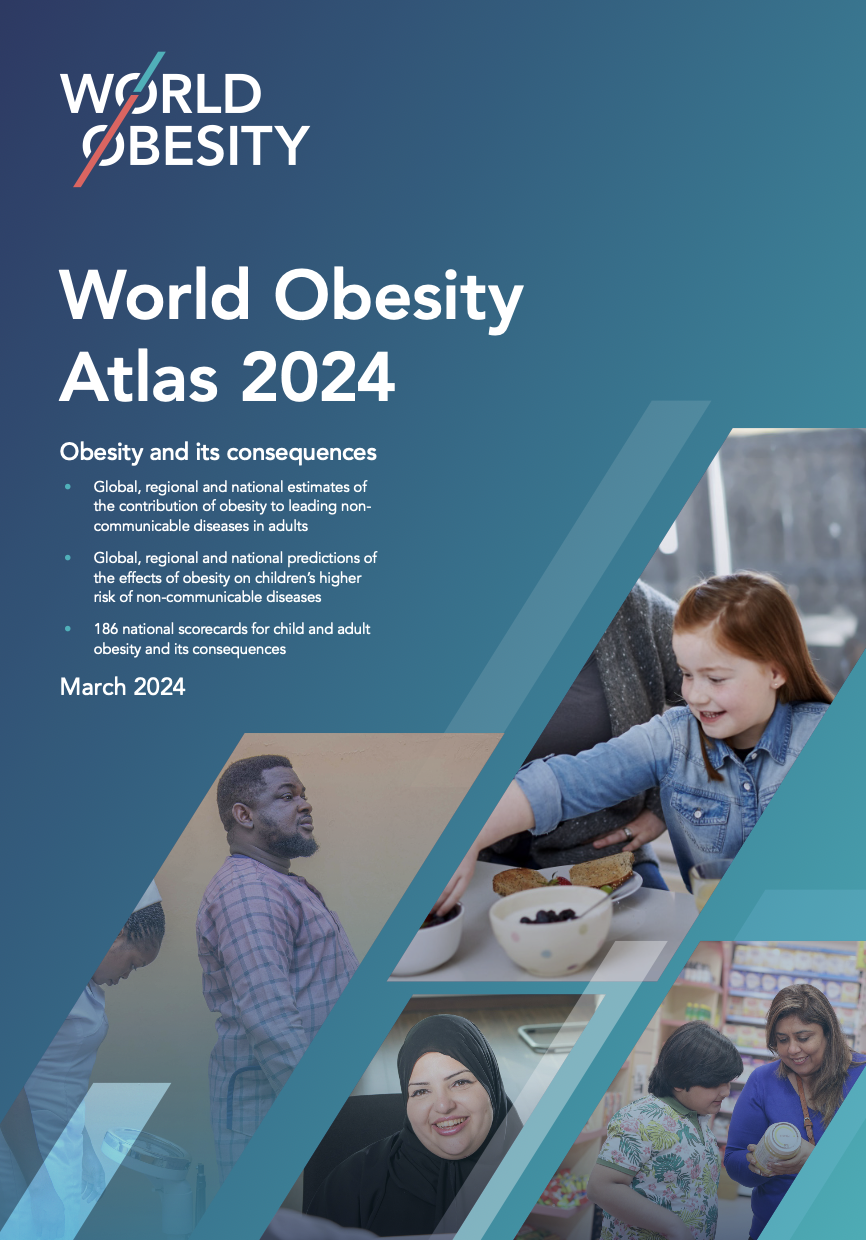Global Allergy & Airways Patient Platform
Bronchiectasis Educational Flyers
Guide
05 Feb 2026
20 Mar 2024

Today, no country in the world is on track to reach the target to ‘halt the rise’ of obesity prevalence by 2030, as set in 2013 by the World Health Organization and approved by all governments. In reality, rather than a zero increase, the World Obesity Atlas 2022 (World Obesity Federation, 2022) estimated that global obesity is likely to have doubled over this time.
By 2035, over half the world’s population will be above a healthy weight. The majority of these people will be in middle-income countries, where obesity is often poorly understood and capacity is lacking to address it. Over 65% of adults who live with obesity globally were living in low- and middle-income countries in 2020, and this is expected to rise to 7 in 10 adults with obesity in 2030.
Obesity is both a disease in its own right and a risk factor for many other non-communicable diseases (NCDs), which are increasingly putting the health of children at risk. 80% of children living with obesity were living in low- and middle-income countries in 2020.
The number of people with obesity is increasing globally, and as highlighted in the World Obesity Atlas 2023 (World Obesity Federation, 2023a) - with significant economic impact.
There are marked differences between regions and levels of economic development that require urgent and tailored action to address obesity and reduce the prevalence.
Low-income and middle-income countries face a double burden of malnutrition, whereby overnutrition and undernutrition coexist within the same individual, household, or population. The double burden of malnutrition has increased in the poorest low- and middle-income countries, particularly in south and east Asia and sub-Saharan Africa, mainly due to overweight and obesity increases (Popkin et al, 2019). Many countries, including Small Island Developing States (SIDS), are experiencing a triple burden with the direct and indirect impacts of climate change exacerbating the burden. The impact of overweight and obesity in poorer communities not only increases their vulnerability health-wise, but their resilience to economic, social and climate crises. It is often the people least able to afford the consequences who will face the heaviest financial burden of the rise of obesity prevalence: paying out- of-pocket for treatment for obesity-related diseases, losing out on work income, and having to take time off work and school to care for family members. The global economic impact of overweight and obesity was estimated to be 2.4% of GDP in 2020, and is estimated to increase to $4.32 trillion by 2035.
“The multiple overlapping crises. The climate crisis and the COVID-19 pandemic, combined with poverty, unemployment, inequality and the marginalization of minority communities are fuelling an increase in obesity, noncommunicable diseases and mental health conditions.”
Dr Tedros, Director-General WHO
The belief that obesity can be addressed through single silo solutions was put to rest during COVID-19, when underlying overweight and obesity combined with increased exposure to unhealthy diet and physical inactivity led to more people becoming ill and dying of COVID-19. The High-Level Meeting on Universal Health Coverage at the United Nations General Assembly in 2023 was a moment for recognising that inclusion of and financing for both prevention and treatment of obesity as part of Universal Health Coverage (UHC) would be essential. Obesity is not only a part of worldwide health, its far-reaching nature means it is at the heart of global health.
However, financing for obesity is nowhere near reflective of the level of impact of obesity on health and economies worldwide. Sustainable, effective funding is urgently needed, alongside effective public health policies and professionals trained to understand and manage obesity. Such financing must be accompanied by coordinated and robust efforts across sectors – public and private, food and health, high-, middle- and low-income countries and all populations. To date, policies to address obesity across the globe have been impeded by lack of political funding, financial support, and coordinated efforts. Fragmentation is best addressed by multisectoral approaches that incorporate immediate action into long-term plans, and that recognise, align and resource the wide range of stakeholders around common objectives and shared accountability.
Fortunately, the approval in 2022 of the obesity recommendations and WHO Acceleration Plan (Branca et al, 2023) offer frameworks and a roadmap for action on obesity, with national plans, evidence-based policies, effective treatment options, training and global coordination. Now, commitments and financing are needed to move from plans to action, and the remaining challenge is to break down the silos, looking for solutions and catalytic funding across sectors. World Obesity’s 2023 Global Obesity Forum in New York during the UN General Assembly touched upon many of these challenges, and the discussion paper ‘An economic Imperative: Catalysing funding to address obesity’ highlights some possible courses of action:
• Making the case for the prevention and treatment of obesity as a public health emergency should appeal to the heads, hearts and pockets of those who hold the purse strings, both within and outside government.
• Mainstreaming obesity, both as part of NCDs but also of other agendas, by fostering collaboration and partnerships that take a holistic, people-centred approach.
• Building the evidence case on the economic impact and the benefits of action on obesity.
• Supporting rapid, sustainable and permanent action to ensure that the environments where we live, learn, work and play are actively supportive of health and of weight maintenance.
Obesity is at the heart of many other agendas but is often not framed as such: building a case for proactively addressing obesity from new areas will have benefits far beyond obesity. As the obesity community advances as part of a wider, positive change in global health, breaking out of disease silos, it positions itself at the heart of this change, and is impossible to ignore.
This exerpt is taken from the World Obesity Atlas report 2024